Filter by

The Risks and Ethics of Human Gene Editing = A Philosophical Guide to the Arg…
This Open Access book is about the risks and the ethics of human germline gene editing, i.e., the possibility to make heritable changes to the DNA of early human embryos or germ cells. Is there something particularly morally problematic about editing the human germline? Is there something unique about germline editing, and, if so, does this suggest that we ought not to edit the human germline, …
- Edition
- -
- ISBN/ISSN
- 9783658469795
- Collation
- XIII, 311 ill; lamp
- Series Title
- -
- Call Number
- -
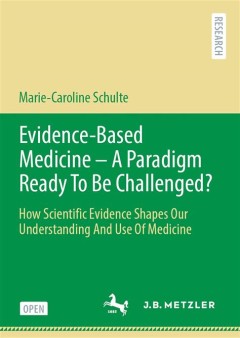
Evidence-Based Medicine - A Paradigm Ready To Be Challenged? = How Scientific…
This open access book aims to clarify the term „evidence-based medicine“ (EBM) from a philosophy of science perspective. The author, Marie-Caroline Schulte discusses the importance of evi-dence in medical research and practice with a focus on the ethical and methodological prob-lems of EBM. The claims that EBM can herald a new theory of epistemology and a Kuhnian paradigm will be refuted. T…
- Edition
- 1
- ISBN/ISSN
- 9783476057037
- Collation
- IX, 148 ill; lamp
- Series Title
- -
- Call Number
- -
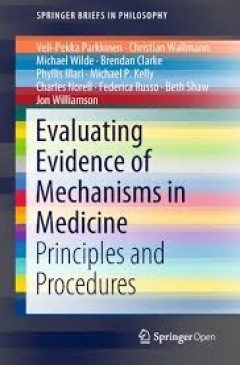
Evaluating Evidence of Mechanisms in Medicine : Principles and Procedures
This book is open access under a CC BY license. This book is the first to develop explicit methods for evaluating evidence of mechanisms in the field of medicine. It explains why it can be important to make this evidence explicit, and describes how to take such evidence into account in the evidence appraisal process. In addition, it develops procedures for seeking evidence of mechanisms, fo…
- Edition
- -
- ISBN/ISSN
- 978-3-319-94610-8
- Collation
- XVIII, 125
- Series Title
- Evaluating Evidence of Mechanisms in Medicine : Principles and Procedures
- Call Number
- 610 PAR e

The Life of Breath in Literature, Culture and Medicine
This open access book studies breath and breathing in literature and culture and provides crucial insights into the history of medicine, health and the emotions, the foundations of beliefs concerning body, spirit and world, the connections between breath and creativity and the phenomenology of breath and breathlessness. Contributions span the classical, medieval, early modern, Romantic, Victori…
- Edition
- 1
- ISBN/ISSN
- 978-3-030-74443-4
- Collation
- -
- Series Title
- Palgrave Studies in Literature, Science and Medicine
- Call Number
- XXII, 555

Precision Oncology and Cancer Biomarkers: Issues at Stake and Matters of Concern
This open access book reflects on matters of social and ethical concern raised in the daily practices of those working in and around precision oncology. Each chapter addresses the experiences, concerns and issues at stake for people who work in settings where precision oncology is practiced, enacted, imagined or discussed. It subsequently discusses and analyses bioethical dilemmas, scientific c…
- Edition
- 1
- ISBN/ISSN
- -
- Collation
- -
- Series Title
- Human Perspectives in Health Sciences and Technology
- Call Number
- XIV, 281
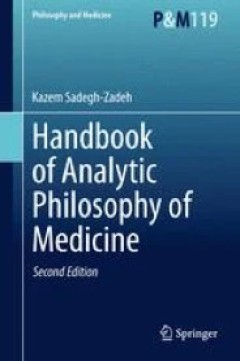
Handbook of Analytic Philosophy of Medicine
Kazem Sadegh-Zadeh (born 23 April 1942) is an analytic philosopher of medicine. He studied medicine and philosophy at the German universities of Münster, Berlin, and Göttingen with Internship and residency 1967-1971, assistant professor 1972-1982, full professor of philosophy of medicine at the University of Münster 1982-2004. Sadegh-Zadeh was born in Tabriz, Iran. He has made significant co…
- Edition
- -
- ISBN/ISSN
- 978-94-017-9578-4
- Collation
- XXXVIII, 1224
- Series Title
- -
- Call Number
- 610 SAD h
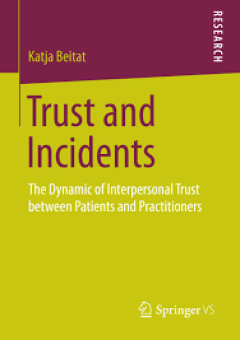
Trust and Incidents The Dynamic of Interpersonal Trust between Patients and …
Taking an interdisciplinary approach to conceptualise interpersonal trust between patients and medical practitioners, Katja Beitat introduces a unique model to describe the dynamics of trust building and deterioration with particular relevance to incidents in health care. Empirical findings from studies in Australia and Germany, the two systems focused on in this book, broadly support and expan…
- Edition
- -
- ISBN/ISSN
- 978-3-658-09670-0
- Collation
- -
- Series Title
- -
- Call Number
- -
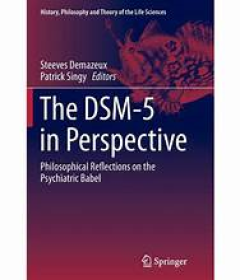
The DSM-5 in Perspective
Since its third edition in 1980, the Diagnostic and Statistical Manual of Mental Disorders (DSM) of the American Psychiatric Association has acquired a hegemonic role in the health care professions and has had a broad impact on the lay public. The publication in May 2013 of its fifth edition, the DSM-5, marked the latest milestone in the history of the DSM and of American psychiatry. In The DSM…
- Edition
- 1
- ISBN/ISSN
- 978-94-017-9765-8
- Collation
- XXIV, 238
- Series Title
- History, Philosophy and Theory of the Life Sciences
- Call Number
- -
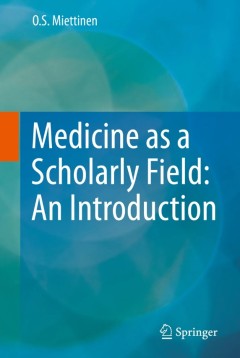
Medicine as a Scholarly Field: An Introduction
This book exposes, and fills, a notable void in the educational content generally covered in modern schools of medicine. It provides an introduction to the field at large in terms of content that is relevant for each of the specialties and subspecialties of medicine; and to this end, it addresses the modern counterpart of the Hippocratic philosophy that was at the root of the genesis of modern …
- Edition
- 1
- ISBN/ISSN
- 978-3-319-19011-2
- Collation
- XVI, 136
- Series Title
- Medicine as a Scholarly Field: An Introduction
- Call Number
- -
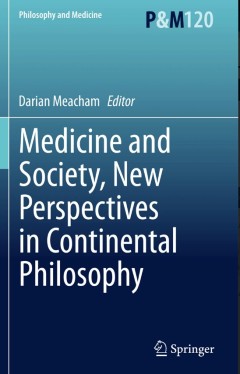
Medicine and Society, New Perspectives in Continental Philosophy
This volume addresses some of the most prominent questions in contemporary bioethics and philosophy of medicine: ‘liberal’ eugenics, enhancement, the normal and the pathological, the classification of mental illness, the relation between genetics, disease and the political sphere, the experience of illness and disability, and the sense of the subject of bioethical inquiry itself. All of the…
- Edition
- 1
- ISBN/ISSN
- 978-94-017-9869-3
- Collation
- VIII, 323
- Series Title
- Philosophy and Medicine
- Call Number
- -
 Computer Science, Information & General Works
Computer Science, Information & General Works  Philosophy & Psychology
Philosophy & Psychology  Religion
Religion  Social Sciences
Social Sciences  Language
Language  Pure Science
Pure Science  Applied Sciences
Applied Sciences  Art & Recreation
Art & Recreation  Literature
Literature  History & Geography
History & Geography